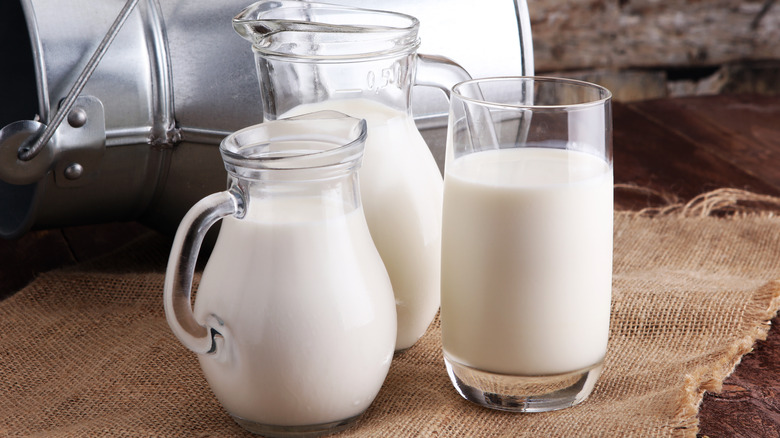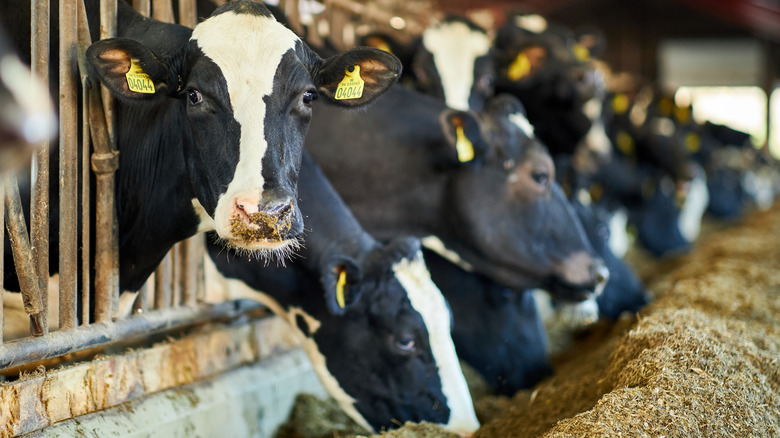This Is Why You Can't Buy Raw Milk In Delaware
Milk is there whenever we need it: For breakfast cereals, coffee (enthusiasm's best friend), and even those slightly odd people who enjoy chugging glasses of it. There are plenty of nutritional benefits to drinking milk, too. According to Harvard School of Public Health, dairy milk is a useful source of protein, calcium, and vitamins A, B2, B12, and D — so that's a sizable chunk of the alphabet taken care of.
However, milk has a high fat content, meaning that considerable consumption can cause weight gain. Consequently, the NHS recommends drinking milk with low fat content. There are other issues relating to health too, particularly when considering the safety of dairy milk.
In fact, Delaware takes this seriously, with its Department of Health and Social Services (DHSS) directing that unpasteurized (raw) milk should not be consumed because of the risk of disease transmission. Milk pasteurization, the DHSS details, involves heating milk to a certain temperature to kill the majority of disease-causing bacteria.
So what exactly are Delaware's rules around drinking raw milk, and what are the potential health dangers?
Drinking raw milk can cause many illnesses
The DHSS explains that Delaware is stricter than other states with its enforcement of raw milk regulations by not permitting the sale or offer of any product containing untreated milk (some states allow these within their individual boundaries). The CDC urges everyone to only drink pasteurized milk, stating raw milk consumption can lead to vomiting, diarrhea, and even death. Pregnant women, children, older people, and those with weakened immune systems are particularly susceptible.
Issues within production — rodents, diseased cows, and feces — are responsible for infecting cow milk before the pasteurization process even begins. Common bacteria to grow in untreated milk include E. coli, Salmonella, and Campylobacter. The CDC reveals there were 127 outbreaks of diseases linked to the consumption of raw milk between 1993 and 2012, resulting in 1,909 illnesses and 144 hospitalizations — although unreported figures are expected to be far higher.
The DHSS provides clarity that pasteurization does not reduce milk nutrition, increase allergies, or cause lactose intolerance. It also adds that raw milk is not a cure for any allergy or disease, while the CDC stresses that it doesn't matter how careful farmers are or if milk is organic: Getting sick from raw milk is a risk too great to take.

